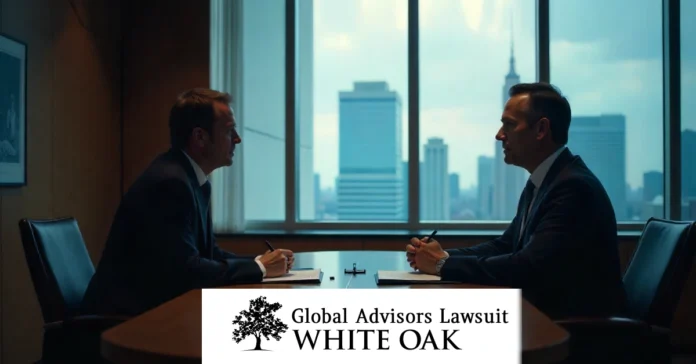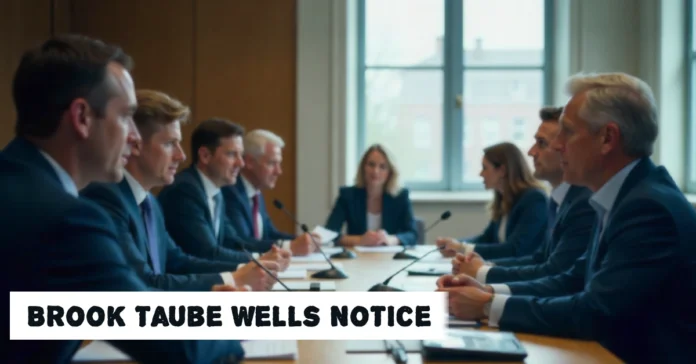The White Oak Global Advisors lawsuit centers on multiple legal disputes filed in 2024. The most significant case involves Isaac Soleimani, a former managing director, who claimed White Oak Healthcare Finance LLC illegally terminated him without buying out his 16.8% equity stake—potentially worth up to $143 million. Delaware courts ruled in Soleimani’s favor, stating his removal was invalid until proper compensation was paid.
The financial sector saw a major legal battle in 2024 when White Oak Global Advisors faced multiple lawsuits that questioned how investment firms handle internal disputes and employee equity stakes. If you’re an investor, employee, or just curious about corporate governance, this case offers critical lessons about contractual obligations and fiduciary duties.
This article breaks down the White Oak Global Advisors lawsuit, explains the key parties involved, and shows what this means for investors and the broader finance industry.
What Is White Oak Global Advisors?
White Oak Global Advisors is an SEC-registered investment firm that provides financing solutions to small and medium-sized businesses. Founded in 2007, the firm manages billions in assets across direct lending, asset-based lending, and specialty finance.
The company operates through multiple affiliates. White Oak Healthcare Finance LLC focuses specifically on healthcare sector investments. These entities share leadership but maintain separate legal structures.
Andre Hakkak serves as the founder and CEO. The firm’s business model centers on providing capital to companies that may not qualify for traditional bank financing.
The Isaac Soleimani Case: The Core Legal Battle
Isaac Soleimani worked as the managing director of White Oak Healthcare Finance LLC. He held a 16.8% equity stake in the company through operating agreements signed when he joined.
White Oak terminated Soleimani’s employment in late 2023. The problem? They didn’t buy out his equity stake as required by the operating agreements. Soleimani argued his removal was invalid without proper compensation.
He filed a lawsuit in the Delaware Chancery Court claiming breach of contract. His legal team valued his equity stake between $100 million and $143 million based on the company’s performance and asset value.
Delaware Court Ruling: What the Judge Decided
Vice Chancellor Lori W. Will ruled in Soleimani’s favor in April 2024. The court found that White Oak Healthcare Finance LLC violated its own operating agreements.
The judge stated clearly: White Oak could terminate Soleimani’s employment for any reason, but only after completing a fair market buyout of his equity interest. Since no buyout occurred, his termination was legally ineffective.
White Oak appealed the decision to the Delaware Supreme Court. In September 2024, the high court upheld the lower court’s ruling in a one-page order. Chief Justice Collins J. Seitz Jr. signed the order, ending White Oak’s appeal options.
This ruling established important precedent. Companies cannot bypass equity buyout provisions in operating agreements, even when terminating employees for cause.
Other Legal Disputes Involving White Oak
White Oak faced additional legal challenges beyond the Soleimani case. Court records show White Oak Global Advisors LLC filed its own lawsuit against defendants named Clarke and others in the Southern District of New York.
Another case involved the Trustees of the New York State Nurses Association Pension Plan. This matter reached the Second Circuit Court of Appeals, though specific details remain limited in public records.
These multiple legal fronts suggest White Oak dealt with various contractual and regulatory issues during 2024. Each case involved different allegations and parties, but all questioned the firm’s business practices and contractual compliance.
Why This Lawsuit Matters for Investors
The White Oak lawsuit highlights critical risks for anyone investing with private equity or alternative asset managers. Courts enforce operating agreements strictly—companies cannot simply ignore contractual obligations when convenient.
Investors should examine how firms handle internal disputes. The Soleimani case shows that governance failures can lead to expensive litigation and potential management instability.
Due diligence becomes more important when firms face legal challenges. Ask direct questions about pending litigation, equity ownership structures, and how the company resolves disputes with key personnel.
White Oak manages significant assets across multiple funds. Legal judgments and settlement payments can impact fund performance and fee structures, potentially affecting your returns.
What Operating Agreements Actually Mean
Operating agreements govern how LLCs function internally. They outline ownership percentages, management rights, buyout provisions, and termination procedures.
The Soleimani case shows why these documents matter. His agreement specified that any termination required a fair market value buyout of his equity stake. White Oak tried to ignore this provision and paid the price in court.
Key takeaways for professionals:
- Operating agreements create binding legal obligations
- Equity buyout provisions protect minority owners
- Companies cannot unilaterally change terms without consent
- Delaware courts strictly enforce written agreements
If you’re negotiating an employment contract with equity, ensure buyout terms are crystal clear. Specify valuation methods, payment timelines, and dispute resolution procedures.
The Impact on White Oak’s Business Operations
Legal battles consume time, money, and management attention. White Oak spent months defending its position through trial and appeals, diverting resources from core business activities.
The $143 million potential payout represents a significant financial obligation. Even for a firm managing billions, this judgment affects capital allocation and possibly fund performance.
Reputation matters in finance. Potential clients and investors may question a firm’s governance and contract compliance when courts rule against them multiple times.
The firm continues operating its lending platforms and serving clients. However, the legal challenges raised questions about internal management practices and how the company treats key personnel.
Lessons for Finance Professionals
This case offers several practical lessons for anyone working in finance or negotiating equity compensation.
First, written agreements matter more than verbal promises. Soleimani won because his operating agreement clearly specified buyout requirements. Always get equity terms in writing with specific valuation methods.
Second, minority owners have legal protections. Even with a 16.8% stake against the majority owners, Soleimani successfully enforced his contractual rights through the courts.
Third, employment termination doesn’t erase equity obligations. Companies must honor ownership rights even after firing someone. Your equity stake remains yours until properly bought out.
Fourth, Delaware courts protect LLC members aggressively. If you’re structuring a company, understand that Delaware takes operating agreements seriously and enforces them strictly.
What Happens Next?
The Delaware Supreme Court’s September 2024 ruling ended White Oak’s appeal options. The company must now negotiate a buyout with Soleimani or face further legal consequences.
Valuation disputes may continue. Determining the fair market value of a 16.8% stake in a private company involves complex financial analysis and potentially more litigation.
White Oak faces decisions about other pending cases. The Clarke litigation and pension plan dispute remain active in federal courts.
The broader industry is watching. This case influences how investment firms structure employee equity agreements and handle internal disputes going forward.
How to Protect Your Interests
If you’re an investor in White Oak funds, review your fund documents for information about legal contingencies and how judgments might affect returns.
Employees with equity stakes should review operating agreements carefully. Understand your rights, buyout provisions, and what happens if the company terminates you.
Consider legal counsel before signing any equity agreement. An attorney can identify problems with valuation methods, buyout terms, or dispute resolution procedures.
Monitor regulatory filings. The SEC requires investment advisors to disclose material legal proceedings that could affect their business operations.
Document all communications about equity, employment terms, and company performance. If disputes arise, contemporaneous records prove invaluable in court.
FAQs
What was the White Oak Global Advisors lawsuit about?
The primary lawsuit involved Isaac Soleimani, a former managing director who claimed White Oak Healthcare Finance illegally terminated him without buying out his 16.8% equity stake. Delaware courts ruled that his termination was invalid until White Oak paid fair market value for his ownership interest, potentially worth up to $143 million.
Did White Oak lose the lawsuit?
Yes. Delaware Chancery Court ruled against White Oak in April 2024, and the Delaware Supreme Court upheld that decision in September 2024. The courts found that White Oak breached its operating agreements by terminating Soleimani without completing the required equity buyout.
How does this lawsuit affect White Oak investors?
The judgment creates a significant financial obligation for White Oak entities, which could impact fund performance depending on how the buyout is structured and financed. Investors should review fund documents and consider asking fund managers about the litigation’s financial impact during investor calls or reporting periods.
The White Oak Global Advisors lawsuit reminds us that contracts matter in business—especially in finance, where equity stakes run into millions. Courts will enforce written agreements even when companies find them inconvenient.
For professionals, this case highlights why clear operating agreements protect everyone involved. Whether you’re negotiating equity compensation or investing in private funds, understanding these legal protections helps you make smarter decisions.





